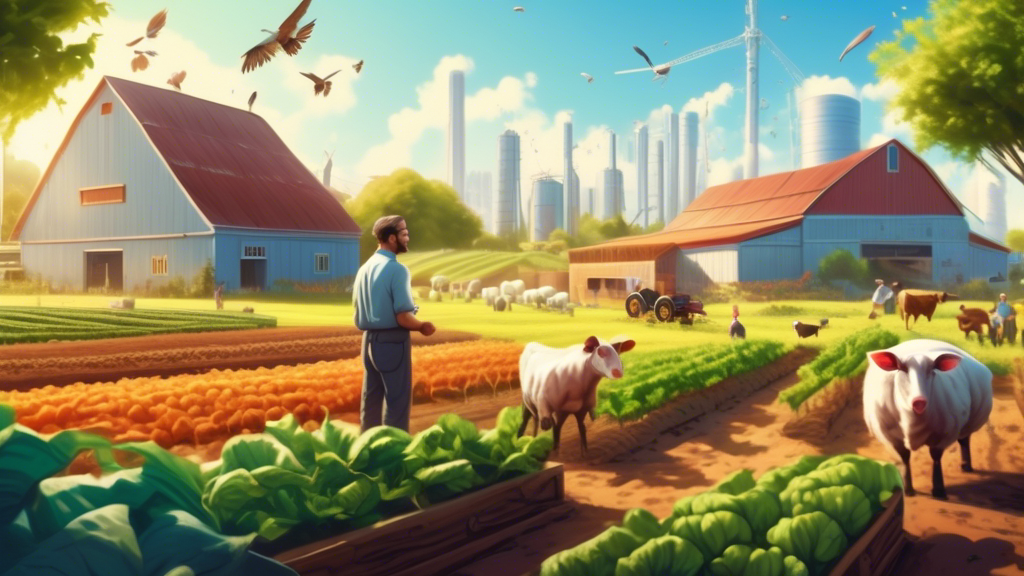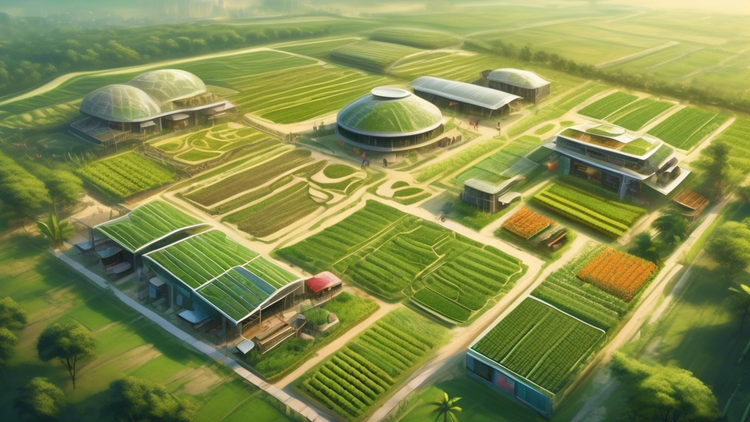Exploring the Science of Organic Farming

Exploring the Science of Organic Farming
The rise of organic farming practices marks a transformative phase in sustainable agriculture, emphasizing not only environmental resilience but also nutritional integrity and ecological balance. By eschewing synthetic pesticides and fertilizers, organic farming fosters a harmonious relationship between farming ecosystems and natural biological cycles. This article delves into the multifaceted scientific principles that underpin organic farming, highlighting its far-reaching benefits for our planet and its inhabitants.
The Pillars of Organic Farming
At its core, organic farming rests on four fundamental pillars:
- Soil Health: Healthy soil is the bedrock of organic agriculture, teeming with microorganisms that play a critical role in plant nutrition. Organic practices such as composting, green manuring, and crop rotations enrich soil fertility and structure, fostering a vibrant underground ecosystem.
- Biodiversity: Organic farms are bastions of biodiversity, encouraging a variety of crop and animal species to coexist. This diversity enhances ecosystem resilience, aids in pest and disease control, and contributes to the genetic conservation of species.
- Natural Pest Management: Instead of relying on chemical pesticides, organic farming utilizes biological pest control mechanisms. These include introducing natural predator species, developing pest-resistant crop varieties, and employing mechanical and physical barriers.
- Sustainable Water Use: Organic practices promote efficient water use and aim to maintain water quality. Techniques such as drip irrigation, mulching, and careful watershed management help to conserve water and prevent runoff pollution.
Scientific Insights into Organic Practices
Research into organic farming practices reveals a wealth of environmental and health benefits. Studies have found that:
- Organic soils exhibit higher levels of organic matter, biodiversity, and activity of beneficial microbes compared to conventional farming soils.
- Organic farming systems are more adept at capturing carbon in the soil, playing a crucial role in mitigating climate change.
- Crops grown organically tend to have higher levels of certain nutrients, including antioxidants, providing potential health benefits when consumed.
- Organic agriculture reduces exposure to harmful chemicals for farmers, neighboring communities, and consumers by eliminating the use of synthetic pesticides and fertilizers.
These scientific findings underscore the broader ecological and societal impacts of organic farming, showcasing its potential as a sustainable solution for future food systems.
Implementing Organic Principles Beyond the Farm
The principles of organic farming extend beyond the fields, influencing food processing, distribution, and consumption patterns. Emphasizing local and seasonal production reduces transportation emissions and supports local economies, while minimizing food processing conserves nutritional quality and reduces energy use.
Adopting organic practices is not only a pathway to sustainable agriculture but also a catalyst for broader environmental stewardship and health consciousness. By supporting organic products, consumers play an active role in promoting sustainable food systems and planetary health.
Here's a thought to consider
Organic farming represents a convergence of ancient wisdom and modern science, offering a blueprint for feeding the world without compromising the planet's health. Its principled approach to agriculture – nurturing the soil, conserving biodiversity, and embracing natural processes – aligns with a vision for a more sustainable and equitable global food system. As we continue to uncover the science behind organic practices, let us embrace the untold benefits of purely planted, wholesomely harvested food for future generations.
#PurelyPlanted #WholesomeHarvest @PlanetPlatter
Looking for updates? Sign up to our newsletter for weekly snippets.





